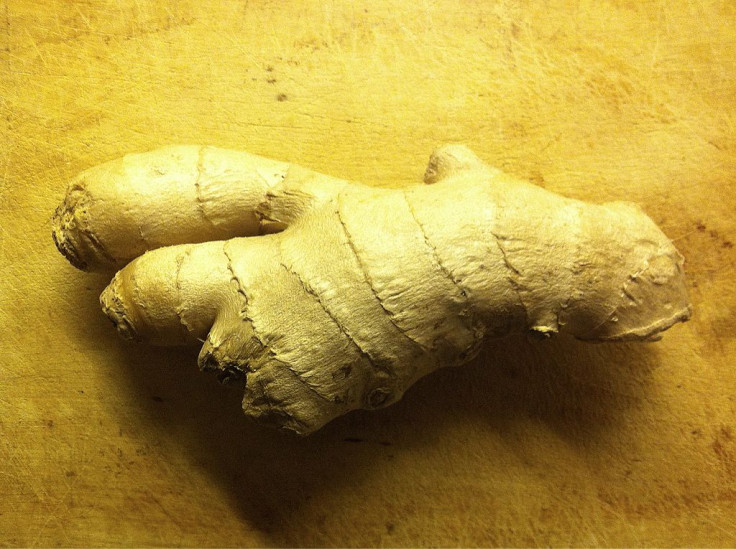Ginger Compounds May Help Treat Asthma

Long known for its digestive benefits, new research shows ginger may help asthma sufferers breathe easier.
Grown in Jamaica, China, and India, ginger can be found everywhere — on street-side tables in New York City or in aisle 7 of the grocery store. Since Roman times, the spice has peppered food dishes sweet and savory, and pairs well with fruits and vegetables, meats, rice, and even chocolate.
Now, researchers from Columbia University's department of anesthesiology say ginger may pair well with bronchodilating medications in relaxing the smooth muscle surrounding airways, which constrict and make breathing difficult during an asthma attack. The study found that three specific components within the spice help enhance the relaxing effects of the medications.
"Purified components of ginger can work synergistically" with medications to relax muscles of the airways, according to Elizabeth Townsend, a post-doctoral research fellow who led the study. "Asthma has become more prevalent in recent years, but despite an improved understanding of what causes asthma and how it develops, during the past 40 years few new treatment agents have been approved for targeting asthma symptoms."
Characterized by bronchoconstriction — a tightening of the muscles within the airways — asthma is usually treated with β -agonists, bronchodilatng medications which relax these muscles. To examine the effect of ginger on the airways, the researchers took airway muscle tissue samples and exposed them in the laboratory to acetylcholine, a neurotransmitter compound that causes the muscle contractions. The investigators then mixed isoproterenol — a type of bronchodilator — with three separate ginger components, including 6-gingerol, 8-gingerol, and 6-shogaol.
After studying the responses the tissue samples, the researchers found that tissues treated with the mixtures of beta-agonist and ginger components were significantly more relaxed than tissues treated with isoproterenol alone. In particular, 6-shogaol appeared most effective in enhancing the effects of the asthma medication.
All three ginger components worked by affecting an enzyme called phosphodiesterase 4D (PDE4D). Previous research has shown that PDE4D, found in the lungs, inhibits relaxation mechanisms on the airway muscles and reduce tissue inflammation. Using a technique called fluorescent polarization, they were able to confirm ginger's effect on the enzyme.
However, the 6-shogaol component was also shown to play a role in outmaneuvering F-actin filaments, a protein structure which also causes constriction of airway smooth muscles, quickly dissolving those filaments.
"Taken together, these data show that ginger constituents 6-gingerol, 8-gingerol and 6-shogaol act synergistically with the β-agonist in relaxing ASM, indicating that these compounds may provide additional relief of asthma symptoms when used in combination with [asthma medication], Townsend said."By understanding the mechanisms by which these ginger compounds affect the airway, we can explore the use of these therapeutics in alleviating asthma symptoms."
The researchers hope future study would enable them to better understand the processes on the cellular level and to learn whether purified ginger might be effective for inhaler delivery of medication.
The investigators will present their findings this week at the American Thoracic Society International Conference in Philadelphia.
Published by Medicaldaily.com



























